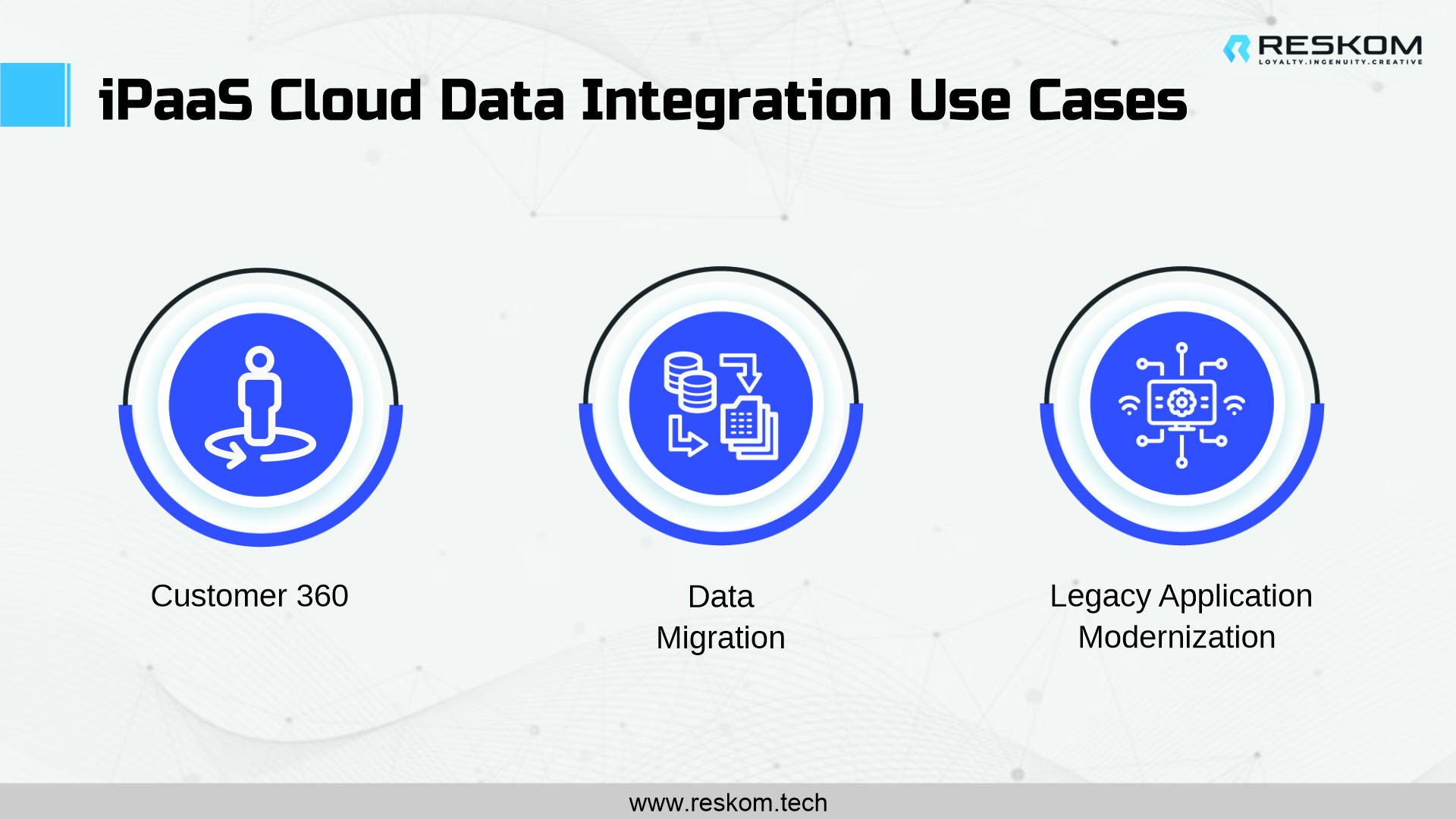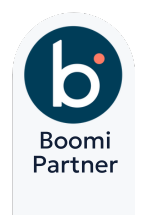Data integration has become a crucial element for success. The seamless flow of data between applications and systems can significantly improve efficiency, decision-making, and customer experiences. This is where iPaaS Cloud Data Integration comes into play. In this comprehensive blog, we’ll delve into the world of iPaaS, exploring its benefits, use cases and core capabilities.

What is iPaaS Cloud Data Integration?
iPaaS is a cloud-based platform that standardizes how applications and data are integrated within an organization. It simplifies the automation of business processes and facilitates data sharing across various applications. With iPaaS, data teams can effortlessly implement data, application, API, and process integration projects.
This ensures that applications and systems work seamlessly together, creating a unified ecosystem for data and processes.
iPaaS Cloud Data Integration Challenges
Enterprises today face the challenge of managing a multitude of applications that are often chosen by different business units and deployed as silos.
As businesses transition to cloud services and embrace edge computing, traditional integration methods become impractical. The demand for integration with a variety of products and services necessitates a more agile approach to data integration.
Why iPaaS Cloud Data Integration?
iPaaS offers a standardized approach to adding new applications and integrating existing ones. It enables dynamic monitoring, maintenance, and updates of integration processes as applications change. This means that data consumers and technical teams can easily build, manage, and maintain integrations. Some key advantages of iPaaS include quicker integrations, faster time to value, enhanced scalability, and lower integration costs.
In comparison with traditional integration solutions, iPaaS provides several compelling benefits. It simplifies integration processes, reducing the need for lengthy planning processes and large project teams. It also enables a faster time to value, as the service is readily available to both operations and development teams. This means that teams can subscribe to the service and start integrating without delay.
Moreover, iPaaS delivers better results with less work, eliminating the need for specialized skills or extensive custom coding. It achieves more efficient and enriched integrations in shorter timeframes without the need for new integration functionality for each addition. This results in enhanced scalability, allowing businesses to meet growing demands without setting up custom in-house integrations repeatedly.
iPaaS Cloud Data Integration Benefits
Let’s explore the benefits of iPaaS in more detail:
Quicker, Easier Integrations: iPaaS simplifies the integration process, eliminating the need for lengthy planning and large project teams. This streamlines the integration of new applications and services.
Faster Time to Value: The service is readily available to both operations and development teams, enabling them to subscribe and start integrating immediately. This reduces the time it takes to realize the value of integration projects.
Better Results, Less Work, and No Specialized Skills: iPaaS achieves more efficient and enriched integrations in shorter timeframes without the need for extensive custom coding or specialized skills. This reduces the complexity and cost of integration projects.
Enhanced Scalability: With the use of public cloud-based integration, businesses can easily scale to meet increasing demands without the need for setting up custom in-house integrations repeatedly.
Expanded Use: iPaaS ensures that anyone in the organization can access the data they need when they need it, even as data and processes are updated across applications. This facilitates better decision-making and collaboration across the organization.
Lower Integration Costs: iPaaS eliminates the need for high-paid developers to generate custom code for integrations. Additionally, the SaaS model allows for cost-effective monthly or yearly subscriptions, with the service provider responsible for the maintenance and storage of interconnected data.
Optimized B2B Integration: iPaaS simplifies the process of exchanging information with external partners, even when different applications are used at different companies.
Embedded API Management: With iPaaS, there’s no need to publish custom APIs or combine APIs from various services. The platform provides a scalable and secure solution for managing APIs.
Cloud Data Integration (iPaaS) Overview
iPaaS is a cloud-hosted platform provided as a service. Subscribers can choose the applications and services they want to integrate, and the rest is managed by the cloud provider. Pricing is typically offered through monthly subscriptions or pay-as-you-go models. iPaaS providers cater to a wide range of integration scenarios, making it suitable for highly regulated industries.
iPaaS Cloud Data Integration Use Cases
Enterprises across various industries rely on iPaaS to manage applications and data efficiently. Some common use cases include Customer 360, data masking, test data management, data migration, and legacy application modernization. iPaaS helps highly regulated sectors achieve secure and compliant data integration.
- Customer 360: Many businesses aim to create a comprehensive and real-time view of customer data. iPaaS facilitates the integration of customer data from various sources to achieve a holistic perspective.
- Data Migration: As businesses transition to the cloud, data migration becomes a crucial step. iPaaS simplifies the process of moving data and digital business operations to cloud environments.
- Legacy Application Modernization: Many enterprises still rely on legacy applications. iPaaS helps systematically move functionality and data from old to new environments, ensuring a smooth transition.
For highly regulated industries like telecommunications, media, financial services, and healthcare, iPaaS offers a secure and compliant solution for integrating data and systems quickly and efficiently. It provides the necessary tools to meet regulatory requirements and protect sensitive data.
Conclusion
iPaaS Cloud Data Integration is a powerful tool for organizations seeking to streamline their data integration processes. With its standardized approach, cost-effectiveness, and versatility, iPaaS empowers businesses to make data work for them, enabling them to stay competitive and agile in an ever-evolving digital landscape.
RESKOM is a leading provider of iPaaS Cloud Data Integration services, offering organizations a robust and scalable platform to seamlessly integrate their applications and data. With a user-friendly interface and a range of tools for data connectivity, orchestration, governance, and more, RESKOM empowers businesses to efficiently manage their data integration needs, ensuring smooth data flows and streamlined processes.


